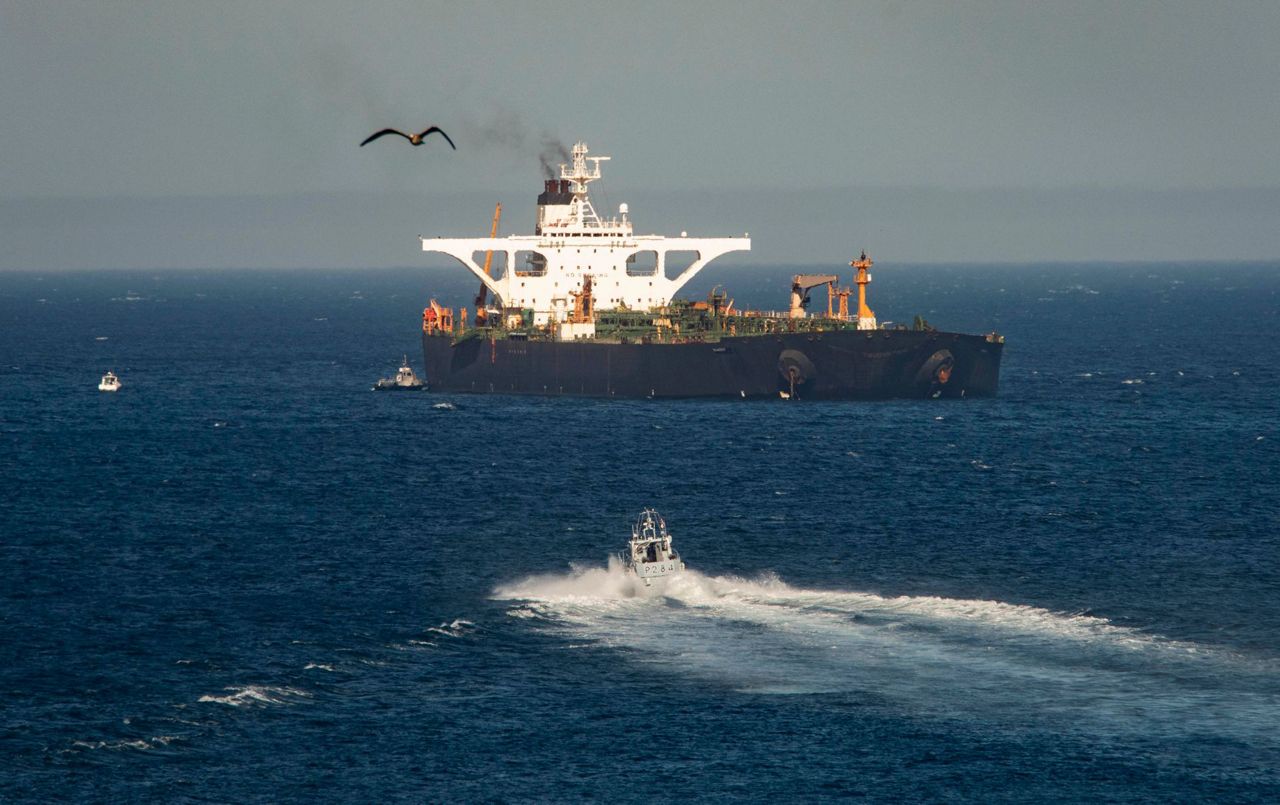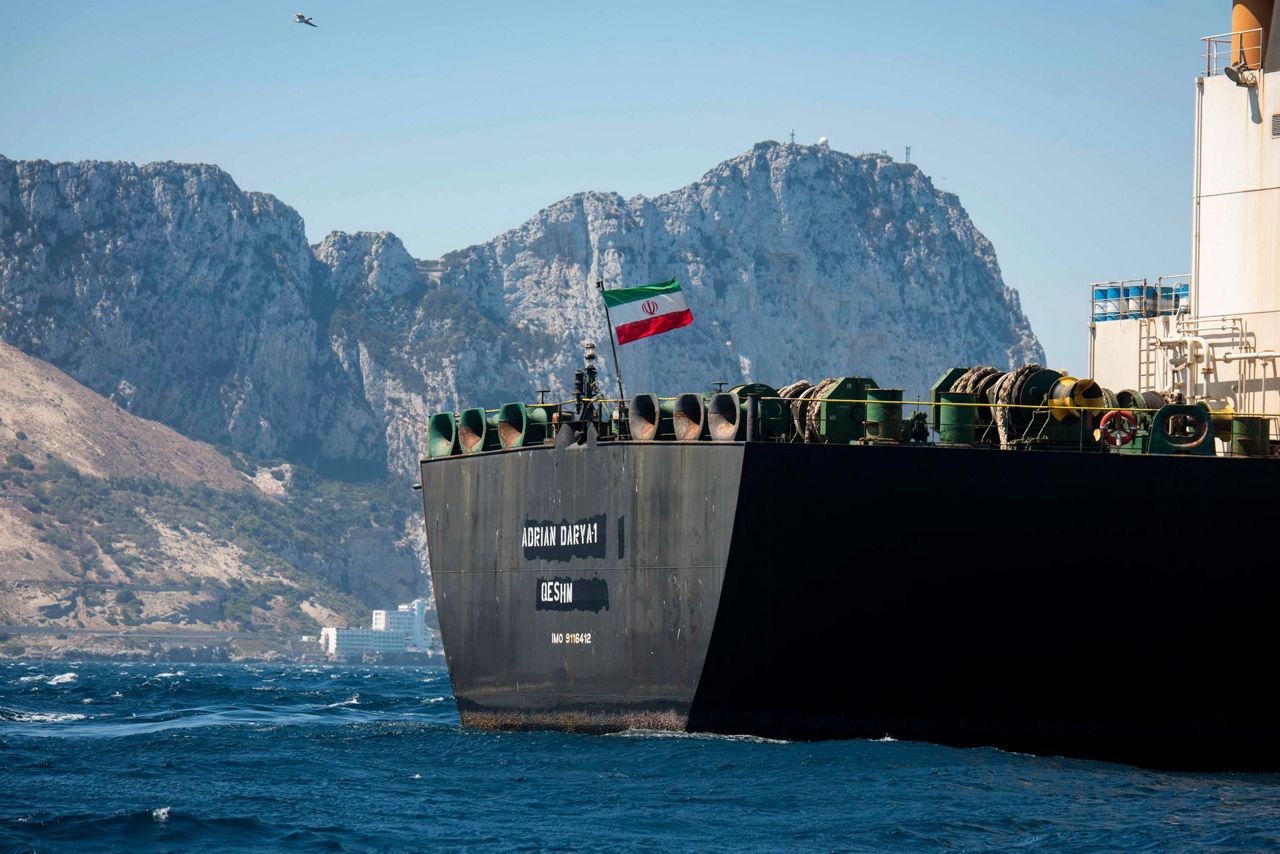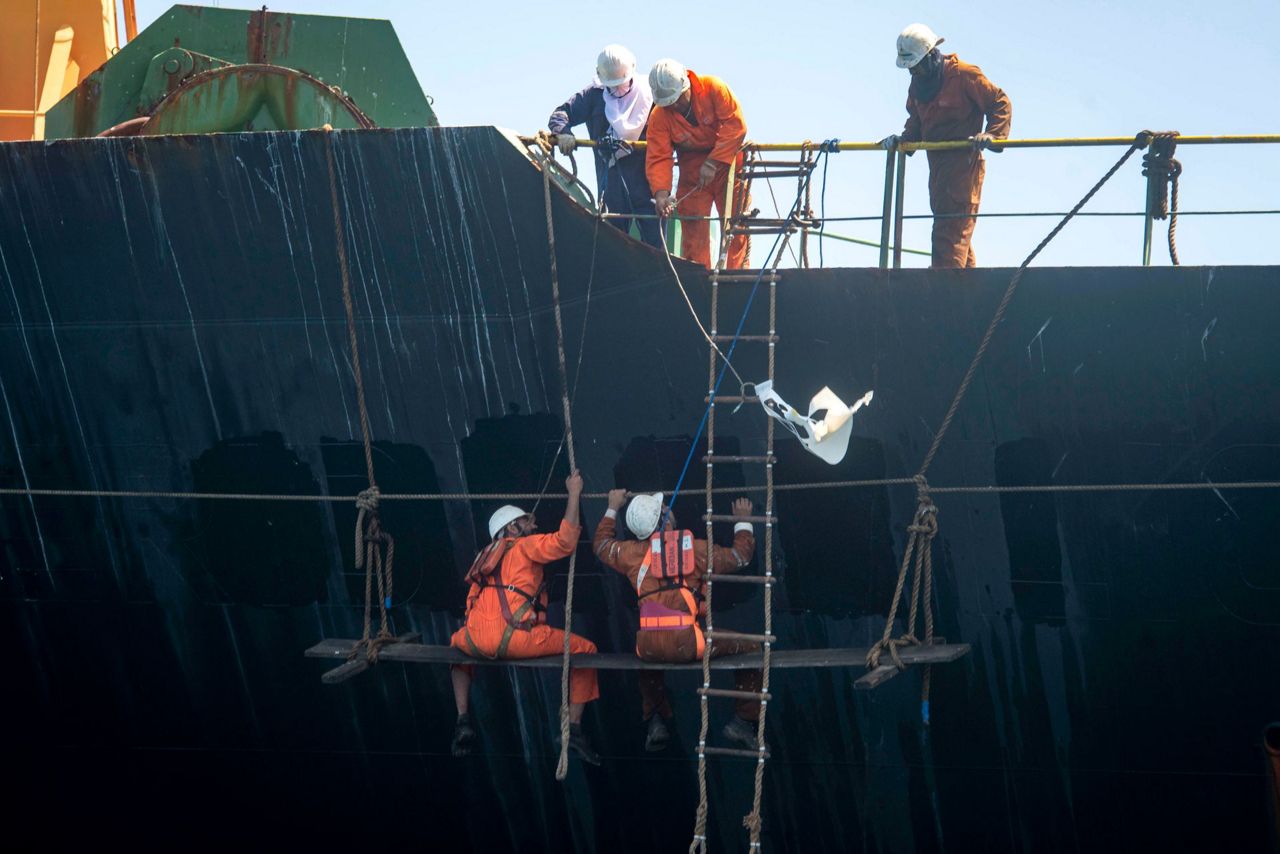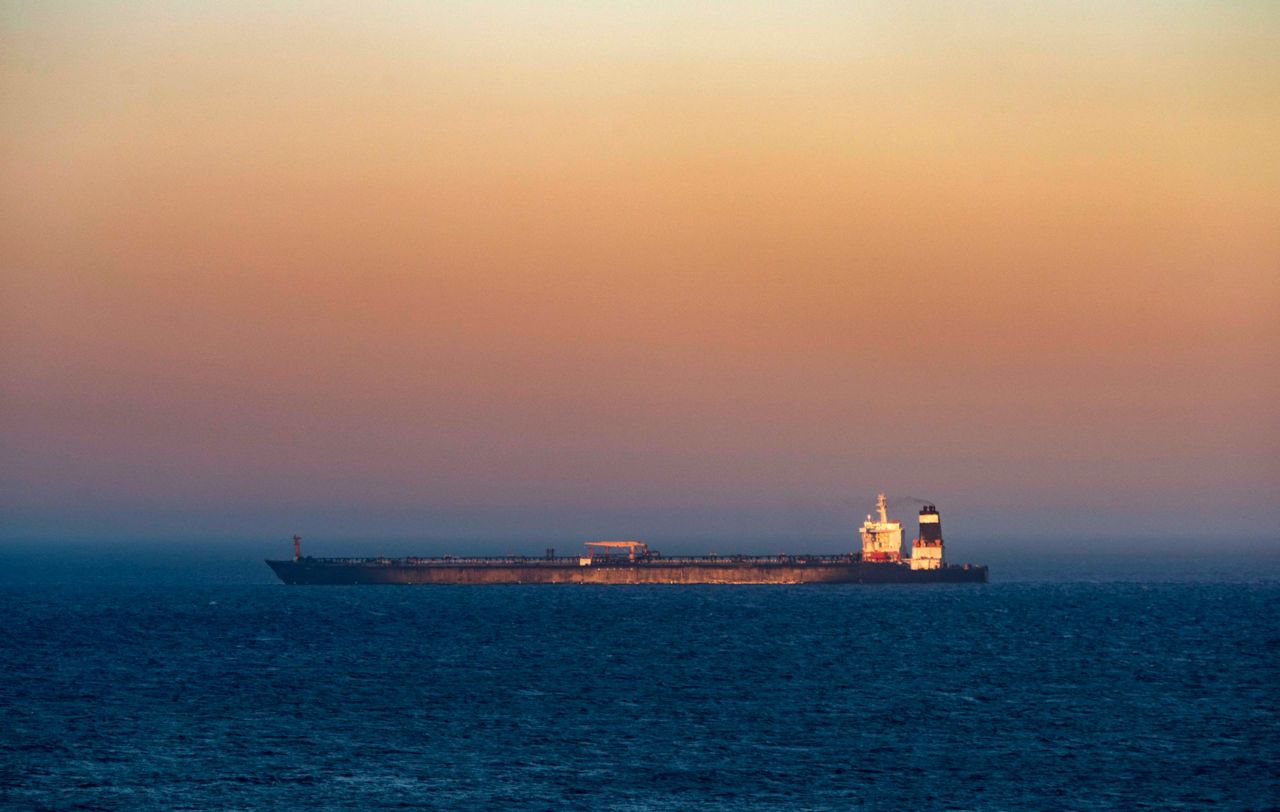ATHENS, Greece (AP) — Greece said on Wednesday it won't endanger its relations with the United States by aiding an Iranian supertanker sought by the U.S. but released by Gibraltar that's currently in the Mediterranean Sea, believed heading for a Greek port.
Deputy Foreign Minister Miltiadis Varvitsiotis said Athens is under pressure from U.S. authorities, which claim the Iran-flagged Adrian Darya 1 is tied to a sanctioned organization.
He told private Antenna TV that the 330-meter (1,000-foot) tanker is too big anyway to enter any Greek port and can't legally unload its $130 million worth of light crude at EU refineries.
The vessel can still enter Greek waters or anchor offshore, in which case Athens will "see" what it will do, Varvitsiotis added.
The affair is threatening to suck Greece into a growing confrontation between Iran and the West after President Donald Trump pulled Washington out of Tehran's nuclear deal with world powers over a year ago. Trump subsequently re-imposed escalating sanctions on Iran, largely halting the sale of Iran's crude oil internationally and sharply depreciating Iran's currency.
The supertanker left Gibraltar on Sunday after being held up for a month for allegedly attempting to breach EU sanctions on Syria.
Gibraltar authorities rejected attempts by the U.S. to seize the Adrian Darya 1, arguing that EU regulations are less strict than U.S. sanctions on Iran. Gibraltar also said Iran provided assurances the tanker wouldn't unload its cargo in Syria.
The ship's declared destination is the southern Greek port of Kalamata, where a vessel of that size and draught would only be able to anchor at least half a mile offshore.
Previously named Grace 1, the ship is now in the waters off Algeria and expected to reach Kalamata on Aug. 26, according to ship tracking service MarineTraffic. Greek authorities say they have received no official notification of where the ship is heading, or any request for it to moor at Kalamata.
"We are sending a message that we are not prepared to facilitate the course of this ship to Syria," Varvitsiotis said. "And this is a message that we have made very clear."
Greece is anxious not to endanger its strategic ties with the U.S., to which it looks for support against neighboring Turkey's oil and gas prospecting ventures off Greece's Aegean Sea islands and Cyprus, or with Israel.
The U.S. Department of State says the supertanker is "transporting illicit oil to fuel the Iranian regime's and Syrian regime's campaigns of terror and oppression," and companies and mariners who assist it could be considered to be providing material support to a U.S.-designated Foreign Terrorist Organization.
The Department of State said Monday it "conveyed (Washington's) strong position to the Greek government on the matter." Varvitsiotis said Athens has had no communication with Tehran on the tanker.
"Nobody from the Iranian government has asked us for anything," he said. "In any case, I don't think the Iranian government is involved — it's a commercial venture for which there may be some government support."
Shortly after the supertanker was detained, Iran seized the British-flagged oil tanker Stena Impero, which remains held by the Islamic Republic. Analysts had said the Iranian tanker's release by Gibraltar might mean that the Stena Impero could go free.
But Iranian officials have denied there had been a tit-for-tat seizure, alleging that the Stena Impero was detained after it violated international maritime law while transiting the Strait of Hormuz.
Copyright 2019 The Associated Press. All rights reserved. This material may not be published, broadcast, rewritten or redistributed.






